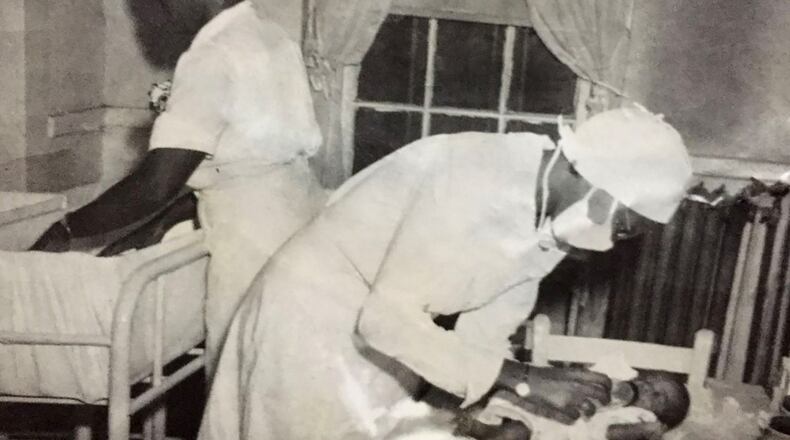The novel coronavirus has ravaged southwest Georgia, particularly in African American communities where health disparities and poor access to healthcare have persisted for generations.
Now, one of the few hospitals in Georgia that cared for black patients decades ago during the era of legal segregation will receive a nearly $500,000 federal preservation grant to keep alive the history of that work. The National Park Service and Historic Preservation Fund awarded the grant to an Americus preservation group to create a new civil rights museum in the hospital’s original building.
The award follows an earlier one given in November, when the Americus-Sumter County Movement Remembered Committee received an initial $500,000 grant from the park service to begin restoration of the building. The April grant brings the total to just under $1 million. The museum, which does not yet have an opening date, will tell the story of African Americans in southwest Georgia from the time the “Americus, Georgia Colored Hospital,” was built in 1923 up to the civil rights movement.
For the 30 years it was in operation, it was one of the few medical facilities in the South that employed African American doctors, nurses, dentists and pharmacists to serve black patients. The hospital was never as well equipped as those serving whites, which severely limited the kind of care it could give patients. Lack of access to quality care can have long-term, negative impacts on a community’s overall health.
Those disparities are among the issues civil rights leaders such as Sam Mahone addressed as the equal justice movement blossomed in Americus and across southwest Georgia in the 1960s. It was during that time that the decommissioned “colored” hospital, became a hub and meeting place for civil rights workers in the city.
Mahone, who now lives in Atlanta, is now president of the Americus-Sumter County Movement Remembered Committee. He said the museum will tell not only the story of the 1960s, but also of the self-sufficiency African Americans had to exercise under legal segregation. It will also serve as a regional hub for groups addressing current racial, economic and justice inequalities, he said.
That the grant came at a time when researchers, the media and community members are talking about the longstanding health disparities faced by African African Americans — and the roots of those disparities —is all the more poignant, Mahone said.
“At the same time we’re dealing with this virus, it fits into the narrative that we’re focusing on,” he said.
About the Author






